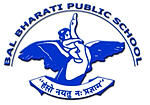A ALA agradeceu hoje a 4 senadores, Tom Harkin (D-IA), Patty Murray (D-WA), Sheldon Whitehouse (D-RI) and Jack Reed (D-RI) por terem conseguido defender mais recursos para bibliotecas escolares, assunto que vai ser discutido no Senado no dia 11 de junho, sobre o Strengthening America’s Schools Act. Este documento reconhece pela primeira vez nos EUA, desde o ESEA de 1965, o papel da biblioteca escolar na aprendizagem dos alunos
If this bill were to become law, it would reauthorize ESEA. Strengthening America’s Schools Act creates specific language for libraries and implements the Improving Literacy and College and Career Readiness through Effective School Library Program. This program has several provisions that will be helpful to students and libraries in the United States including defining an effective school library program as:
- Staffed by a state-certified or licensed school librarian;
- Having up-to-date books, materials, equipment, and technology (including broadband);
- Including regular collaboration between classroom teachers and school librarians to assist with the development and implementation of curriculum;
- Supports the development of digital literacy skills
Furthermore, this legislation will allow for the Department of Education to award three-year grants to low income school libraries to maintain up-to-date school library collections, staffed by a state-certified school librarian and for other purposes relating to a school library.School librarians are literacy champions and primary educators in teaching students digital skills. A recent study (PDF), found that elementary schools with librarians averaged 68 to 72 percent of students scoring proficient or advanced on a statewide test of reading.
First education bill in decades acknowledges effective school library programs - American Library Association

